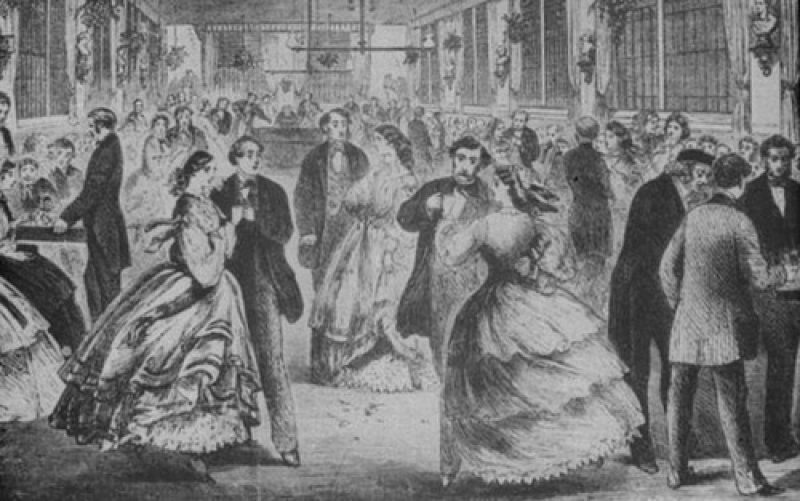Nineteenth Century Society: Women, Madness and Marriage 2
Unconventional behaviour was sometimes (but not always) regarded as evidence of insanity. Victorian Bethlem’s medical officers certainly did not appear to think badly of those female patients who chose education over marriage (perhaps unsurprising: obituaries of George Savage hailed him as a champion of medical education for women) – nor, indeed, was this necessarily the case with the patient’s families. Isabella Clemes, admitted in 1892, was a Teacher of Mathematics and graduate of Newnham College, Cambridge; her brother felt that she had shown “no special nervousness” prior to the commencement of her illness – indeed, eccentricity seemed to be predominantly on the male side of the family and, although the maternal grandmother “was carried away a little by "spiritualism" in her old age … up to that time she had been a remarkably able & executive woman.”
“Disappointment in love”, often regarded as a cause of illness in single patients, was thus not particularly associated with women, as indicated in the case of Alfred Freeman and Alice Meeks. Twenty-one year old Freeman’s sentimentality was regarded as part of his apparently troublesome nature; he is “generally annoying everyone” wrote Bethlem’s medical officers in 1894, inserting examples of his love poetry into the casebooks as evidence. Also inserted was the letter he wrote to a female patient, Alice Meeks, after meeting her at one of the regular Hospital dances.
“Dear Dr Hyslop,” Miss Meeks wrote after receiving Freeman’s proposal of marriage. “You will be greatly amused at my letter, also the one which I have enclosed. I must say you won’t be more surprised than I was this afternoon at receiving such a stupid lot of nonsense. I can assure you my ideas of love are very far from that quarter. I don’t suppose in my 22 years of happiness I could ever have thought less about that sort of thing. You remember about my speaking to you about a secret, that even my own Mother & Father know nothing at all about, at the early age of 19 years I had an offer of marriage from a Medical Student, he was very young only 23, but to all outward appearances seemed rather to like my company. He said that in 5 years time he hoped to have a good home for me, but I only laughed at it as I could not & do not understand that meaning love. I fear I am rather a loveless creature. Hoping you will not laugh at me. Yours sincerely, A.G.M. Meeks.”
Seemingly well aware that her behaviour as a “loveless creature” rather defied the expectations of society, the firm and decisive manner of Miss Meeks’ letter is rather at odds with her apparent condition in the Hospital, in which she was generally seen as silent, depressed, and later “stuporous.” Her independent tone, however, was echoed by many other young women in the 1880s and ‘90s: most of whom were working, and often did not live with their families. Those who did might express the opinions of Fanny Hider, a 30-year-old governess admitted in 1888, "that if she is allowed to go home she will have her own way, & will do as she likes, she means to be independent." Shortly thereafter, Fanny was discharged well.
